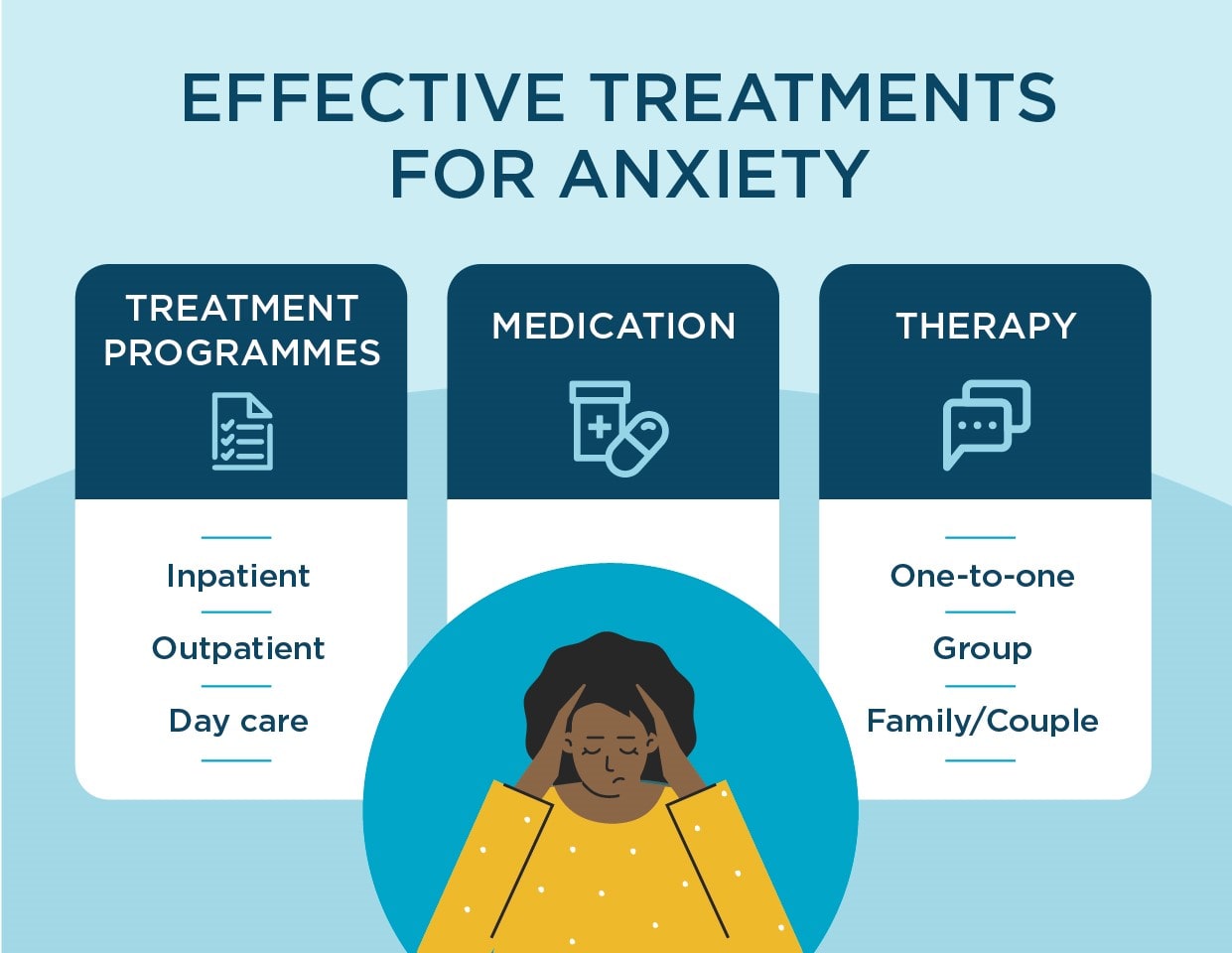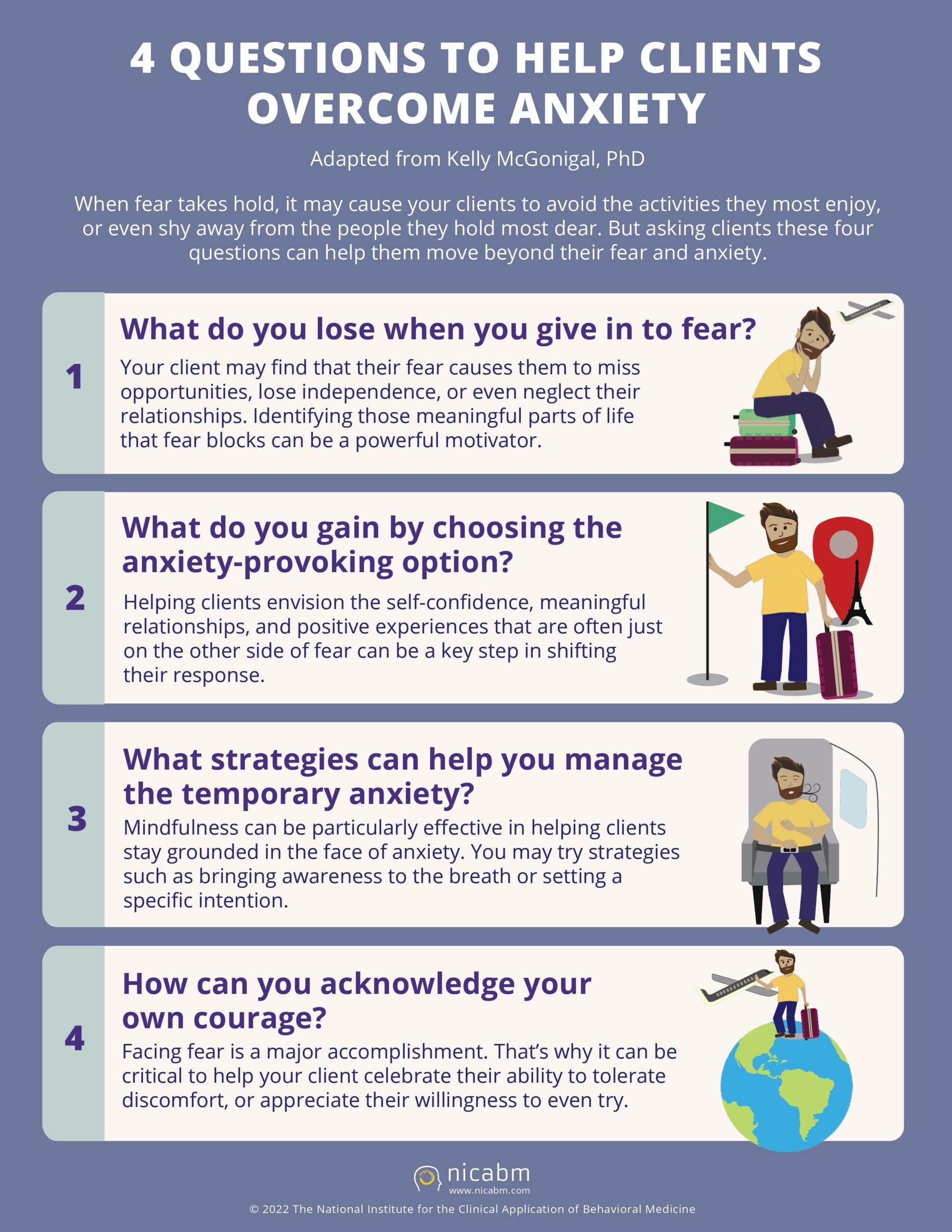Connect now for specialized counselling for anxiety services
Connect now for specialized counselling for anxiety services
Blog Article
Checking Out Various Strategies in Counselling for Anxiousness Disorder for Enduring Change
When tackling stress and anxiety problems, it's vital to check out a variety of therapy methods. Each technique provides distinct insights and devices to help you handle your signs properly. You may locate that combining techniques can generate the very best results. Recognizing the subtleties of these methods is vital to cultivating enduring change. What if the ideal mix could launch a new degree of psychological health for you?
Understanding Anxiety Problems: A Short Introduction
Anxiousness conditions, which influence millions of people worldwide, can considerably influence every day life. You might experience frustrating feelings of fear or fret that appear unmanageable. These feelings can bring about physical signs and symptoms like an auto racing heart, sweating, or also wooziness. Typical types of stress and anxiety problems include generalised anxiety problem, panic attack, and social anxiousness problem. Each has special signs, however they all share a tendency to interrupt your regular and relationships.Understanding the origin of your stress and anxiety is crucial. It may come from genetics, mind chemistry, or life experiences. Acknowledging your triggers can assist you manage your actions better. It is very important to bear in mind that you're not alone in this struggle. Many individuals face similar difficulties, and looking for help is a solid action towards sensation much better. By finding out about stress and anxiety disorders, you're already on the path to understanding and managing your problem more efficiently.
Cognitive-Behavioral Treatment: Challenging Unfavorable Idea Patterns
In Cognitive-Behavioral Treatment, you'll start by determining the negative thought activates that add to your anxiousness. You'll function on replacing them with even more positive alternatives as soon as you identify these thoughts. With each other, you'll build efficient coping strategies to aid handle your anxiousness in daily scenarios.
Recognizing Unfavorable Idea Triggers

Acknowledging the certain triggers behind your negative ideas can be important in managing stress and anxiety when you come across minutes of distress. Beginning by taking notice of scenarios that provoke sensations of worry or fear. Is it a jampacked space, a future target date, or a conversation with certain individuals? Write down these instances in a journal. This will certainly help you identify patterns in your thinking. Also, notice physical feelings that accompany your adverse thoughts, like an auto racing heart or tightness in your chest. By identifying these triggers, you gain insight into what's fueling your anxiety. Recognizing these connections is the first action in testing those thoughts and ultimately reclaiming control over your emotional actions.
Changing Ideas With Positives
Challenging negative thought patterns is an essential action in changing your attitude and reducing anxiety. You may commonly find on your own trapped in cycles of self-doubt or devastating thinking. As opposed to allowing these thoughts dictate your feelings, method changing them with realistic choices or positive affirmations. When you believe, "I can not handle this," change it to, "I can handle obstacles one step at a time." This straightforward modification can considerably impact your emotion. On a regular basis recognizing and countering these adverse ideas aids develop a healthier inner dialogue. Remember, it takes time and initiative, however regularly exercising this strategy can lead to lasting adjustment, empowering you to deal with anxiousness with restored self-confidence and strength.
Building Coping Approaches With Each Other
Replacing negative ideas is just the beginning of taking care of stress and anxiety properly. To create long-term modification, you need to build coping techniques that equip you. Cognitive-Behavioral Treatment (CBT) helps you determine and test those purposeless idea patterns. With each other, you and your counselor can explore how these ideas effect your feelings and behaviors.Start by developing sensible methods, like journaling or mindfulness exercises, that permit you to challenge anxiety head-on. When you encounter your anxieties slowly, you'll find out to respond in different ways.

Mindfulness and Acceptance-Based Approaches: Cultivating Present-Moment Awareness
As you navigate the complexities of anxiety, integrating mindfulness and acceptance-based techniques can considerably improve your ability to cultivate present-moment awareness. By concentrating on the right here and now, you'll find that you can observe your thoughts and feelings without judgment (Counseling services for anxiety). This technique aids you recognize your stress and anxiety without feeling overwhelmed by it.Engaging in mindfulness exercises, such as deep breathing, body scans, or guided meditations, allows you to ground on your own in your current experience. Acceptance-based methods urge you to accept your emotions instead than deal with against them. They shed their power over you.Incorporating these methods right into your everyday regimen can transform exactly how you react to anxiety when you accept your sensations. You'll develop durability and learn to navigate demanding circumstances with higher simplicity. Ultimately, cultivating present-moment awareness lays the structure for enduring modification, equipping you to lead a more meeting life
Exposure Therapy: Facing Worries Slowly
Exposure treatment aids you face your fears in a gradual means, making it less overwhelming. You'll learn methods to face anxiety-provoking circumstances detailed, while also constructing coping approaches to handle your responses. This method equips you to take control and reduce anxiousness with time.
Steady Direct Exposure Methods

When encountering stress and anxiety, progressively challenging your anxieties can be a powerful way to reclaim control. This method, referred to as progressive exposure, includes gradually revealing yourself to the circumstances or things that trigger your stress and anxiety. Beginning with less intimidating scenarios and progressively work your way approximately more difficult ones. If you're terrified of public talking, you might start by speaking in front of a mirror, after that progress to sharing thoughts with a close friend, and at some point attend to a tiny group. Each step helps desensitize you to the fear, developing your confidence gradually. Remember, it's necessary to speed yourself and celebrate small victories as you relocate via this process, strengthening your ability to manage anxiousness successfully.
Building Coping Approaches
Building effective coping techniques is necessary for handling stress and anxiety, particularly as you confront your concerns gradually - Counseling services for anxiety. One effective approach is exposure therapy, where you start by encountering your anxieties in a regulated manner. Start with much less daunting situations and gradually work your way as much as more challenging scenarios. This gradual exposure assists desensitize you to stress and anxiety causes, making them much less overwhelming.Incorporate leisure methods, such as deep breathing or mindfulness, to soothe your mind during direct exposure. Track your progression, celebrating little victories in the process to boost your confidence. Bear in mind, it's all right to take your time; the objective isn't perfection however constant renovation. By developing these approaches, you'll encourage on your own to navigate anxiousness and embrace life extra fully
Psychodynamic Treatment: Discovering Source of Anxiousness
Psychodynamic therapy discovers the unconscious mind, disclosing the origin of your stress and anxiety. By examining your ideas, feelings, and past experiences, this technique assists you discover underlying conflicts and unsettled concerns that may add to your current anxiousness. You'll collaborate with a specialist to investigate youth experiences, relationships, and emotional patterns that form your actions today.As you obtain understanding into these much deeper layers of your mind, you'll begin to identify just how past events influence your present habits. This understanding can result in catharsis, allowing you to refine emotions you may have suppressed.Through the healing relationship, you can additionally recognize defense reaction that may have created over time, providing a clearer course to alter. Eventually, psychodynamic therapy furnishes you with the tools to resolve your stress and anxiety at its core, promoting long lasting transformation in your psychological well-being.
Alternative and integrative Techniques: Integrating Methods for Greater Efficiency
Integrating different restorative strategies can enhance your journey towards handling stress and anxiety better. By incorporating aspects from cognitive-behavioral therapy, mindfulness methods, and all natural strategies, you can develop a tailored approach that addresses your one-of-a-kind demands. You may use cognitive-behavioral methods to challenge adverse idea patterns while including mindfulness exercises to ground on your own in the existing moment.Additionally, exploring holistic practices such as yoga or meditation can advertise relaxation and decrease anxiousness symptoms. This blend allows you to establish greater self-awareness and resilience.Experimenting with these diverse methods can help you discover what reverberates most with you. Bear in mind, it's concerning locating a synergy that functions, instead than staying with a single approach. This integrative strategy not just offers instant alleviation but additionally promotes long-lasting abilities for taking care of anxiety, empowering you to redeem control over your life.
The Role of Support Equipments: Structure Resilience With Link
While it might seem that handling anxiety is a solitary journey, having a strong support group can play an essential role in your durability. Surrounding yourself with empathetic friends, family, or support groups produces a secure area where you can freely share your feelings and experiences. You remind on your own that you're not alone in this struggle.These partnerships provide encouragement and can offer practical coping techniques that have functioned for others when you attach with others. It's likewise an opportunity to acquire perspective; buddies can help you see circumstances in different ways, minimizing sensations of isolation.Moreover, emotional assistance promotes a sense of belonging, which can significantly minimize anxiousness signs and symptoms. By leaning on your support system, you can construct resilience and take on challenges better. Keep in mind, reaching out for help is an indication of stamina, and it can make all the difference in your trip toward taking care of stress and anxiety.
Often Asked Questions
What Are the Usual Signs And Symptoms of Stress And Anxiety Problems?
You may experience uneasyness, tiredness, problem concentrating, irritation, muscle mass stress, and rest disturbances. Physical signs can include rapid heart beat, sweating, and trembling. Identifying these signs early can assist you seek suitable assistance and therapy.
The Length Of Time Does Treatment Normally Last for Anxiety Conditions?
Therapy for anxiety conditions generally lasts anywhere from a couple of weeks to numerous months. It really depends upon your specific demands, progression, and the techniques your therapist uses to aid you manage your anxiety efficiently.
Can Medicine Be Used Alongside Treatment for Stress and anxiety?
Yes, drug can definitely be made use of along with therapy for stress and anxiety. Combining both strategies frequently boosts treatment efficiency, aiding you handle symptoms while discovering underlying problems with counseling (Counseling services for anxiety). Constantly consult your healthcare copyright for individualized recommendations
Exist Self-Help Methods for Taking Care Of Stress And Anxiety?
Yes, there are several self-help strategies for taking care of anxiety. You can exercise mindfulness, take part in routine workout, maintain a balanced diet regimen, develop a regular, and utilize deep breathing strategies to more info help in reducing anxiousness signs successfully.
How Do I Know if I Required Professional Help for Anxiety?

Report this page